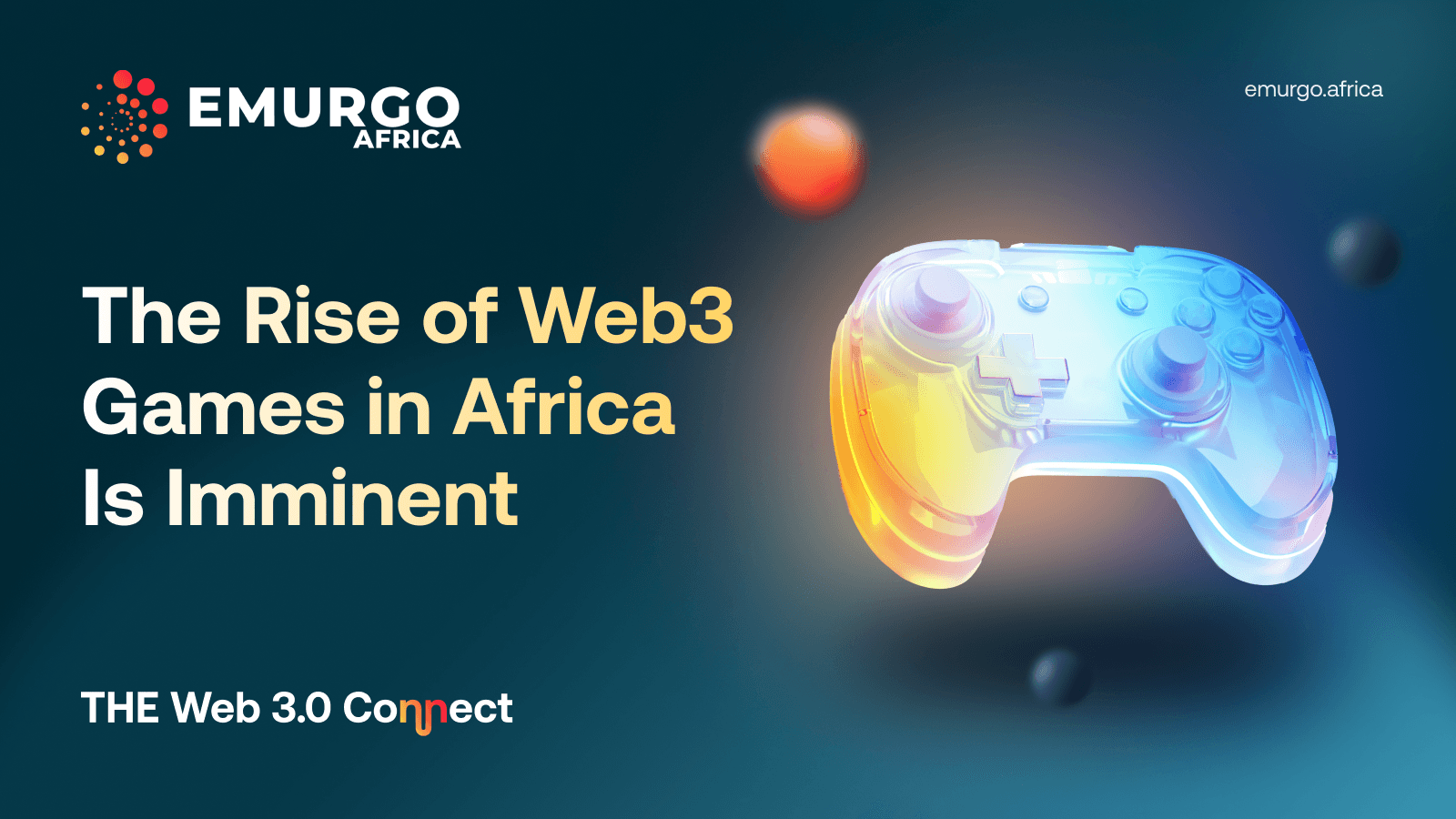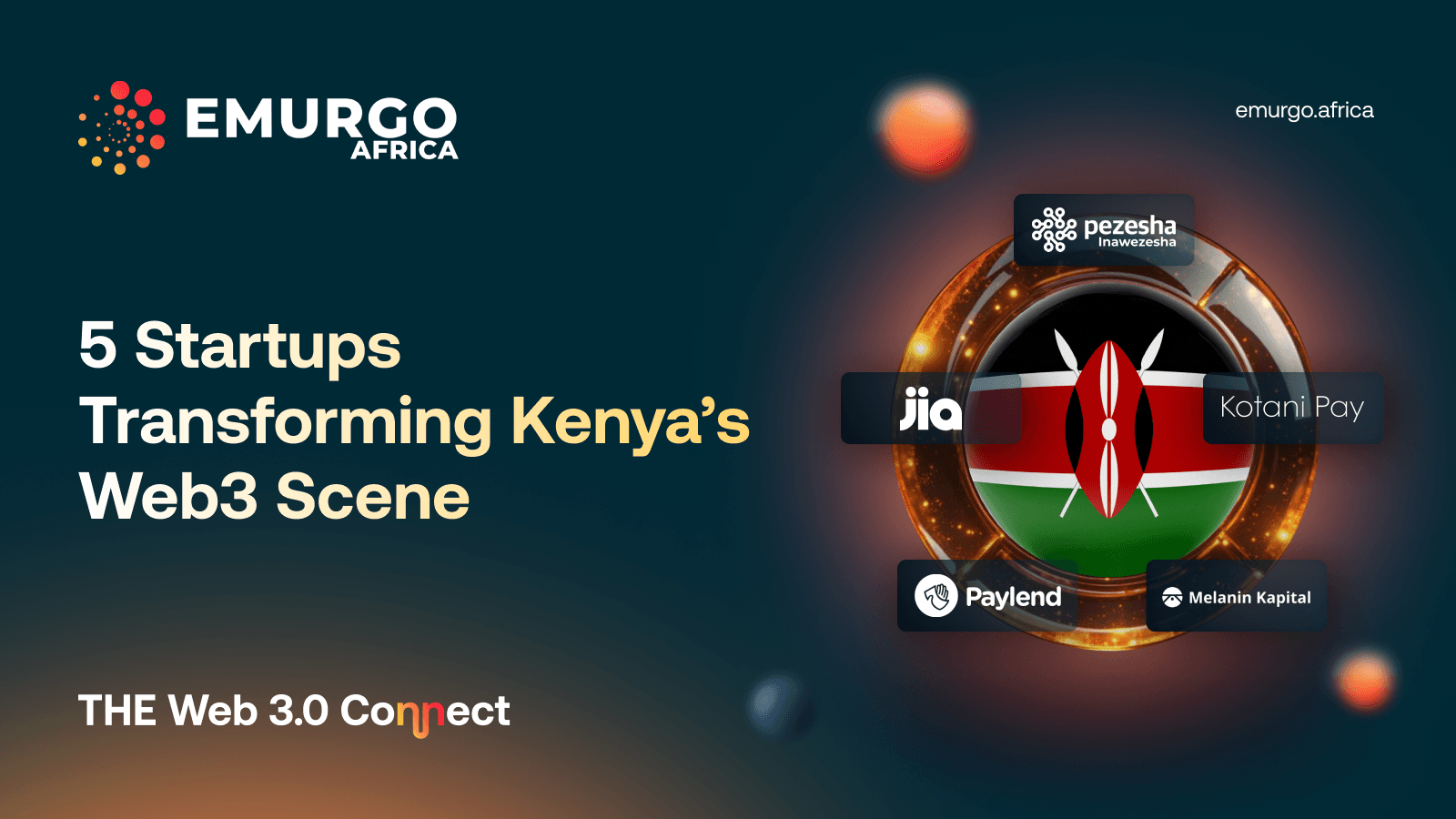By Shogo Ishida and Yosuke Yoshida, Co-CEOs, EMURGO Africa
Web3 gaming or GameFi, is experiencing significant growth in Africa, fueled by increasing internet penetration, reducing cost of mobile internet, a young and tech-savvy population, higher access to smartphones and rising investment in the tech sector.
Key Takeaways:
- Nigeria, South Africa, Kenya and Ethiopia are the key GameFi markets in Africa
- The success of Web3 gaming in Africa hinges on Play-to-Earn models
- The lack of laws to govern the Web3 industry in Africa is hampering GameFi growth
What is GameFi?

GameFi, short for gaming finance, blends online gaming with decentralized finance (DeFi) to create an in-game economy with opportunities to earn real-world value. It is also called Web3 gaming. GameFi projects use cryptocurrency wallets to store game assets and distributed ledgers to track those assets as they move from the developer's wallet to a player's wallet (or from one player to another).
Play-to-Earn (P2E) is the core concept. By playing the game, users can earn digital assets, rare items, tokens and cryptocurrencies. These can be used within the game or sold on marketplaces for real money. When a player earns cryptocurrency or NFTs, smart contracts automatically reward them.
Blockchain technology underpins GameFi, allowing for secure ownership of in-game assets. Non-fungible tokens (NFTs) are commonly used to represent unique items like art, music or avatars. Some GameFi games let players stake their tokens or NFTs to earn passive income. Others let players earn weekly rewards based on their in-game rankings.
DeFi is integrated into GameFi to offer additional financial opportunities. For instance, players might be able to stake their earned tokens to generate interest.
Overall, GameFi aims to revolutionize gaming by giving players more control over their in-game experiences and the potential to earn a profit.
The State of Web3 Gaming Africa
Africa boasts a rapidly growing mobile gaming market, with smartphone gaming accounting for 92% of all gamers. Web3 games, often mobile-friendly, are leveraging this existing user base. At least 63% of gamers have paid for gaming services, and the continent’s gaming market value is expected to hit $1 billion by the end of 2024.
Africa is a global leader in crypto adoption, with over 53 million crypto owners on the continent. This familiarity with crypto is fueling the acceptance of Web3 gaming's play-to-earn model.
Web3 gaming in Africa is showing significant promise, with various countries emerging as key players in this rapidly evolving sector. Nigeria, Kenya and Morocco are at the forefront of this transformation, ranking high in the global interest in GameFi. Nigeria ranks second globally among countries most interested in Web3 gaming, highlighting its significant market potential. This has attracted game developers and publishers to tap into the enthusiastic and growing user base in the country.
Web3 game development is a booming industry in Africa, with an increasing number of game developers and entrepreneurs exploring this area. Popular blockchain platforms for GameFi development are Ethereum and Polkadot, which enable features like digital ownership of in-game assets and player-driven economies.
Gaming in Africa is poised to leverage blockchain's promise of true ownership and economic participation, which traditional gaming models lack.
Top 10 GameFi Startups in Africa

- Carry1st (South Africa): Founded in 2018, Carry1st is the leading Web3 game publisher and digital commerce platform in Africa. It focuses on mobile gaming and payment solutions, combining gaming with social and financial tools to engage users in the African market. It partners with African game developers to publish their web3 games, and operates Play1st, a web3 app store specifically designed for the African market.
- Gamic Guild (Nigeria): Gamic is a prominent Web3 social communication platform with a strong focus on gaming. They boast the largest Web3 gaming guild in Africa and offer a suite of tools for gamers, eSports teams, and gaming guilds. Their features include a wallet service, community management tools, and an NFT airdrop program.
- Mara (Nigeria): Mara is an all-in-one Web3 ecosystem providing a suite of financial and blockchain-based services. It aims to accelerate the adoption of digital finance and decentralized applications across Africa.
- Jambo (DRC): Aims to democratize access to Web3 opportunities across the continent. The company operates in over 19 regions, and offers a SuperApp that integrates education, play-to-earn gaming, and personal finance functionalities. It also manufactures a smartphone specifically tailored for Web3 industry products including gaming.
- Zed Run (South Africa): A digital horse racing game that uses blockchain technology, allowing users to buy, breed, and race digital horses, combining gaming with NFT ownership.
- Eksab (Egypt): Eksab is a daily fantasy sports platform leveraging blockchain to offer users enhanced security and transparency in fantasy sports gaming.
- Qene Games (Ethiopia): Develops culturally relevant mobile games and explores the integration of blockchain technology to offer unique in-game asset ownership.
- Usiku Games (Kenya): Popularized the concept of “play-to-save” among young people to encourage them to pay towards their health insurance premiums.
- EmPawa (Nigeria): EmPawa integrates gaming with music streaming, using blockchain technology to offer unique, gamified music experiences for African users.
- Bithub Africa (Kenya). Develops blockchain-based gaming solutions for the African market, such as web3 games. It created a Web3 game that allows players to earn cryptocurrency rewards for completing tasks and challenges within the game.
GameFi Funding in Africa
Several major investors and venture capital firms are actively funding Web3 gaming startups in Africa. Some key players include:
- BITKRAFT Ventures: A global investment platform focusing on gaming, Web3, and immersive technology. They led the $27 million funding round for South African gaming startup Carry1st, which incorporates Web3 elements.
- Andreessen Horowitz (a16z): A prominent American venture capital firm. It participated in Carry1st's funding round alongside BITKRAFT Ventures.
- Google: Through its various investment arms, Google has shown interest in African tech startups, including Web3 gaming initiatives like Carry1st, participating in a $20 million Series A round.
- Riot Games: The creator of popular games like League of Legends, Riot Games, has invested in Carry1st to help expand its reach and capabilities within the African market.
- Sony Innovation Fund: Recently launched by Sony, this fund aims to foster the growth of entertainment businesses, including gaming, across the continent. Carry1st is one of its first investments, highlighting the potential of the African gaming market.
- Mercy Corps: Through its Crypto for Good fund, Mercy Corps is investing in blockchain-based projects in Africa, which may include Web3 gaming initiatives aimed at promoting financial inclusion.
- Animoca Brands: Known for its significant investments in Web3 and blockchain gaming in the North African region, where it has partnered with Web3 gaming venture Farcana.
Web3 Regulation Could Boost GameFi Penetration in Africa
The lack of regulatory frameworks governing the Web3 industry in Africa is significantly hampering the growth of GameFi and other blockchain-based innovations on the continent. While the potential for blockchain technology to revolutionize various sectors in Africa is immense, the absence of clear and supportive laws creates barriers to progress and adoption. Of all countries in the continent, only South Africa has supportive laws to make GameFi thrive.
This regulatory void makes it difficult for companies to plan long-term strategies and secure funding. Investors are often hesitant to fund projects that might face future legal complications or government crackdowns.
However, many African countries are looking to properly regulate the Web3 sector, with clear regulatory frameworks expected to provide legal certainty, which is crucial for attracting both local and international investors. When these laws are transparent and predictable, investors feel more secure in funding GameFi projects, knowing there is a lower risk of sudden legal changes that could affect their investments.
Regulatory sandboxes, for example, allow startups to test their products in a controlled environment with regulatory oversight, reducing the risk and cost of compliance while encouraging creative solutions. As more GameFi startups emerge and grow, they will require a diverse range of skills, from blockchain development to marketing and community management. This can help build a robust digital economy and generate employment across various sectors.




